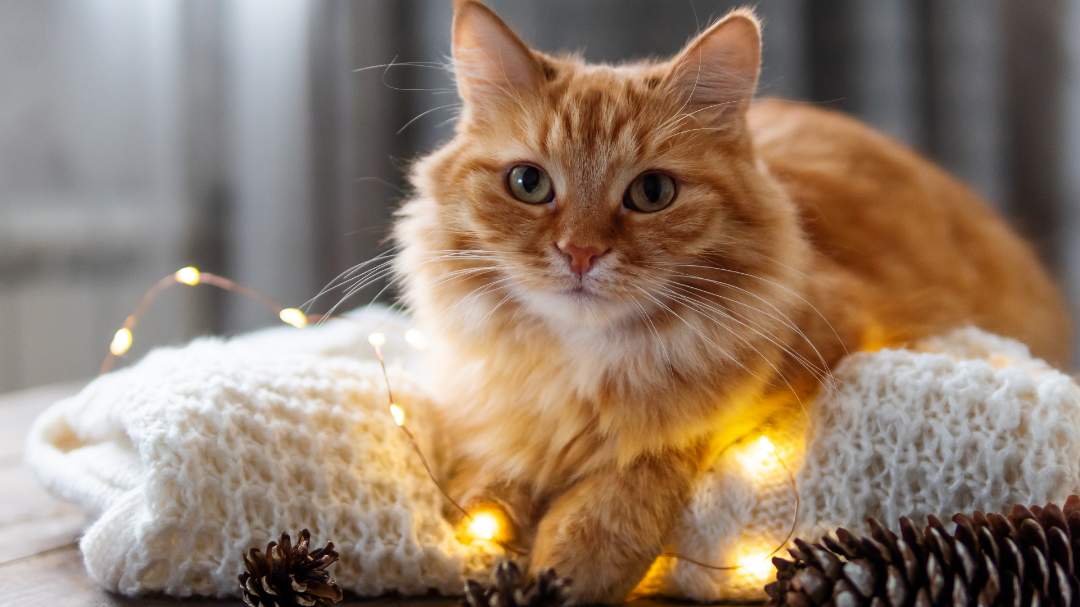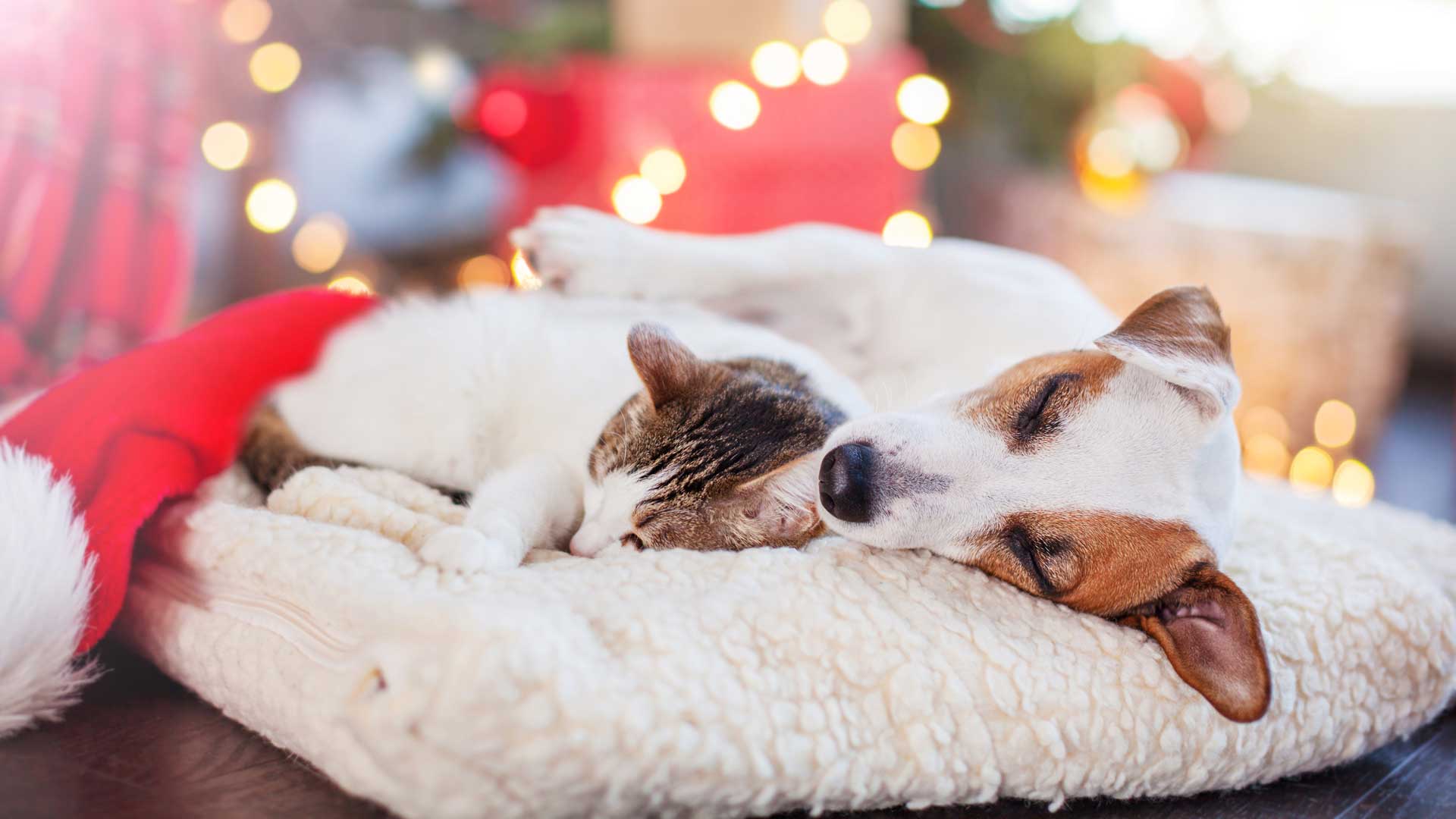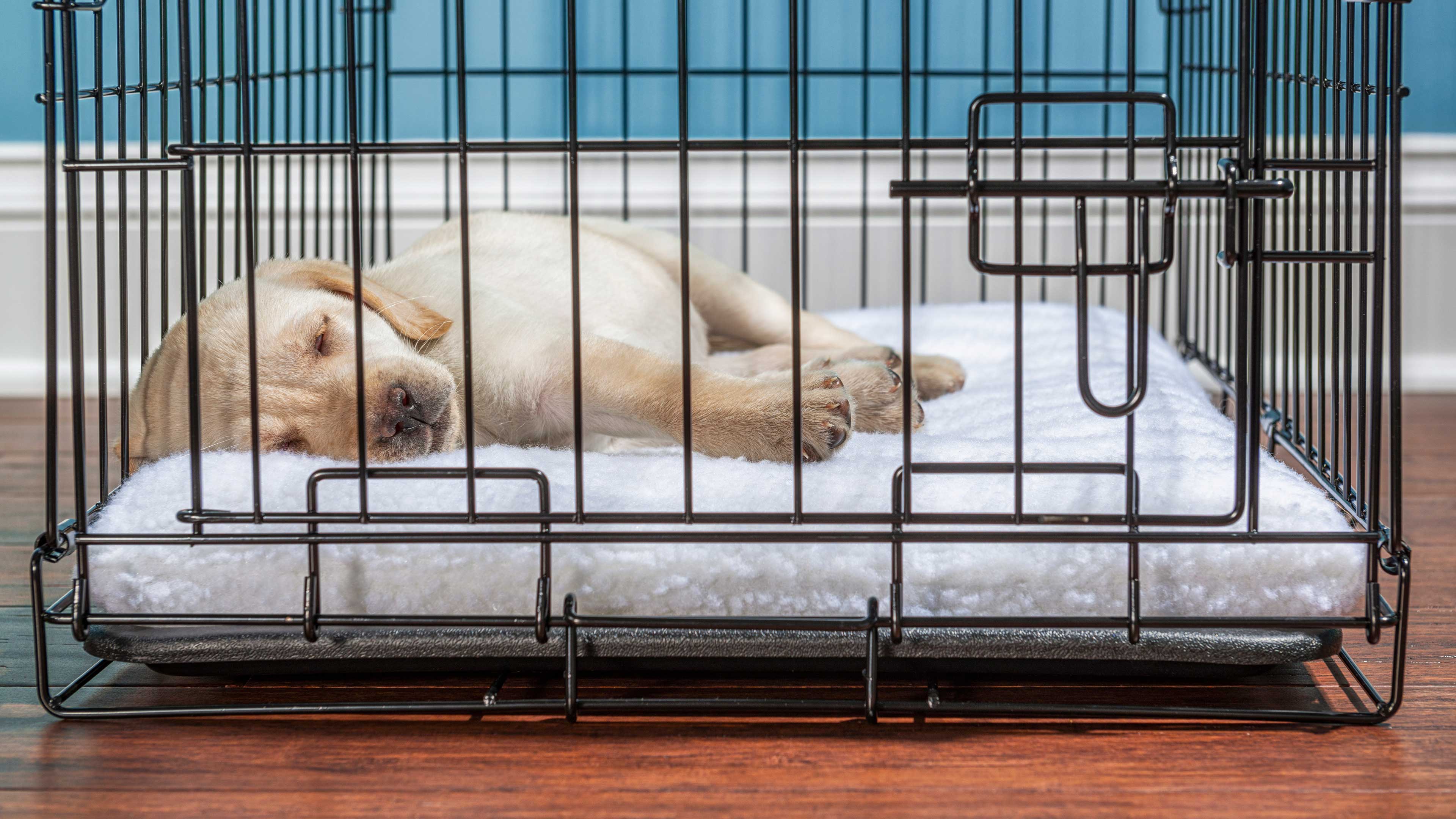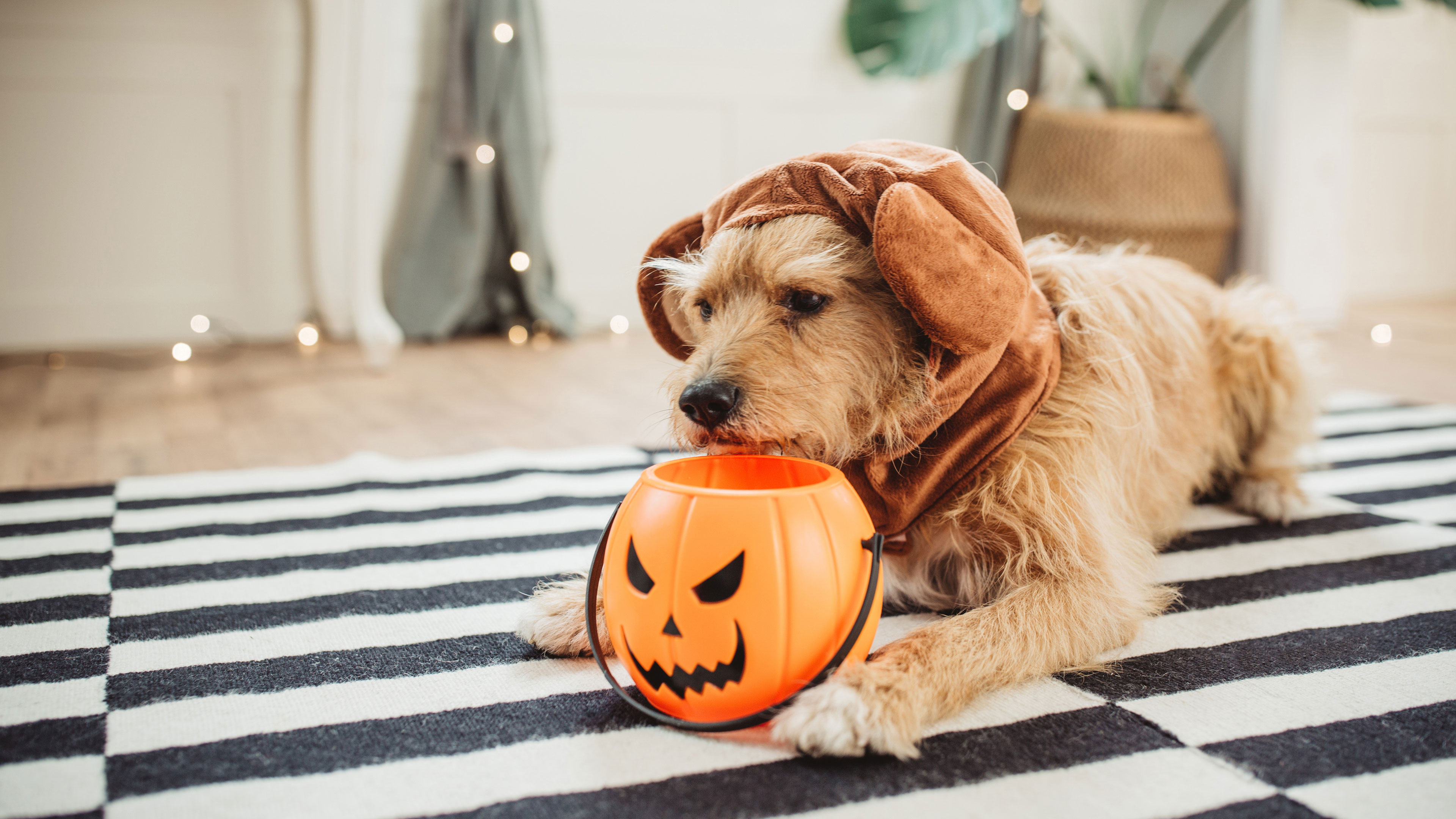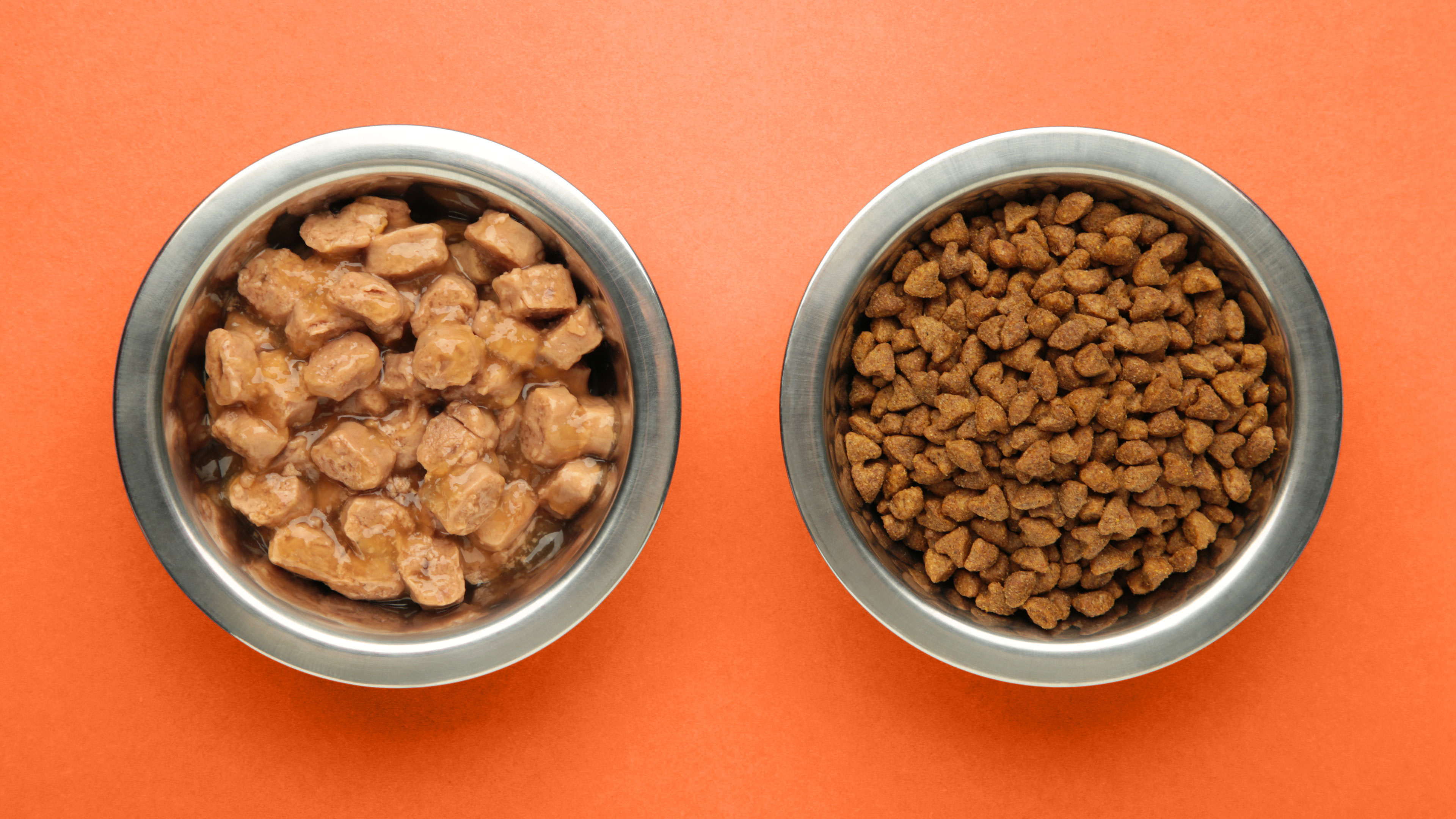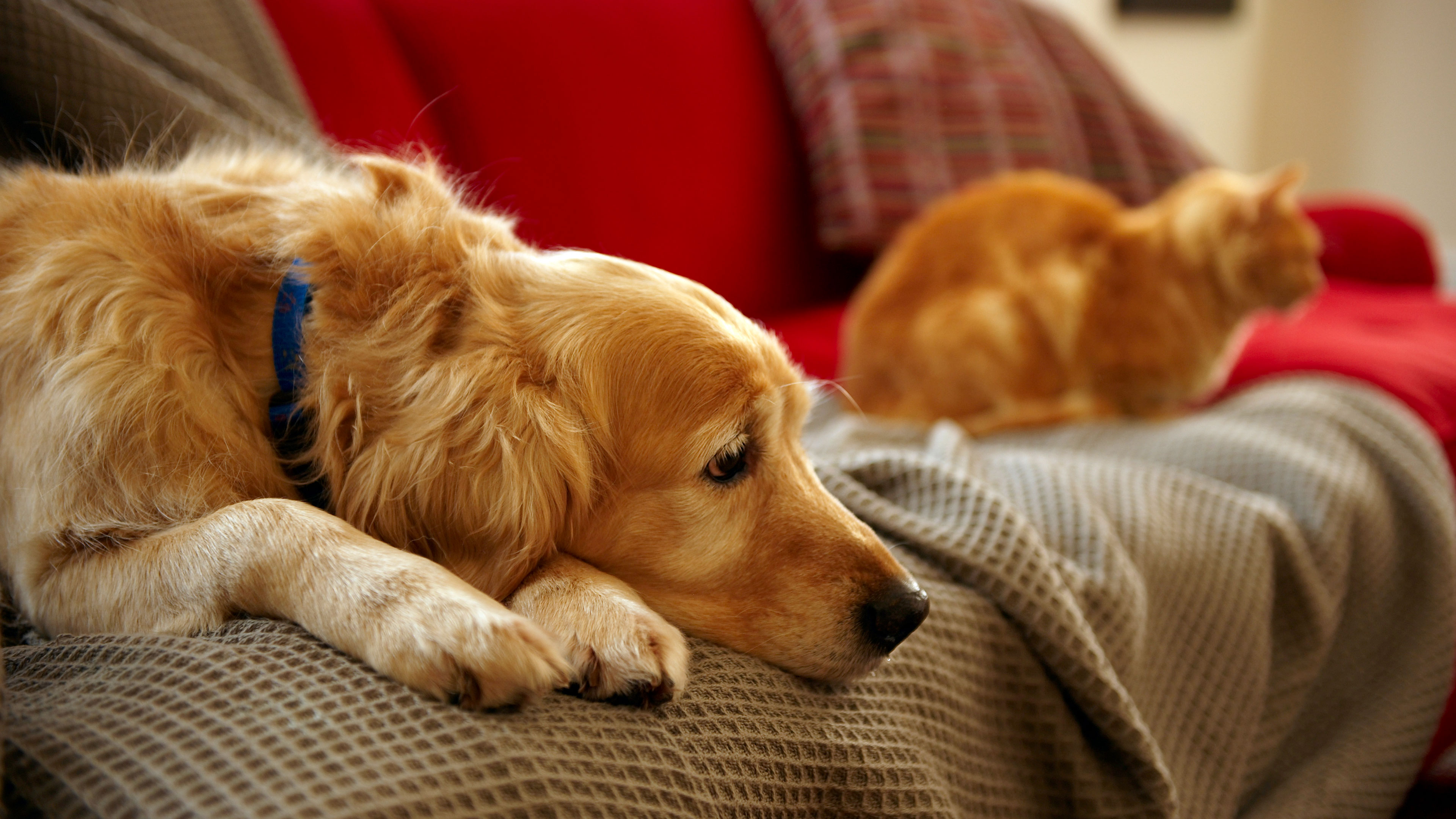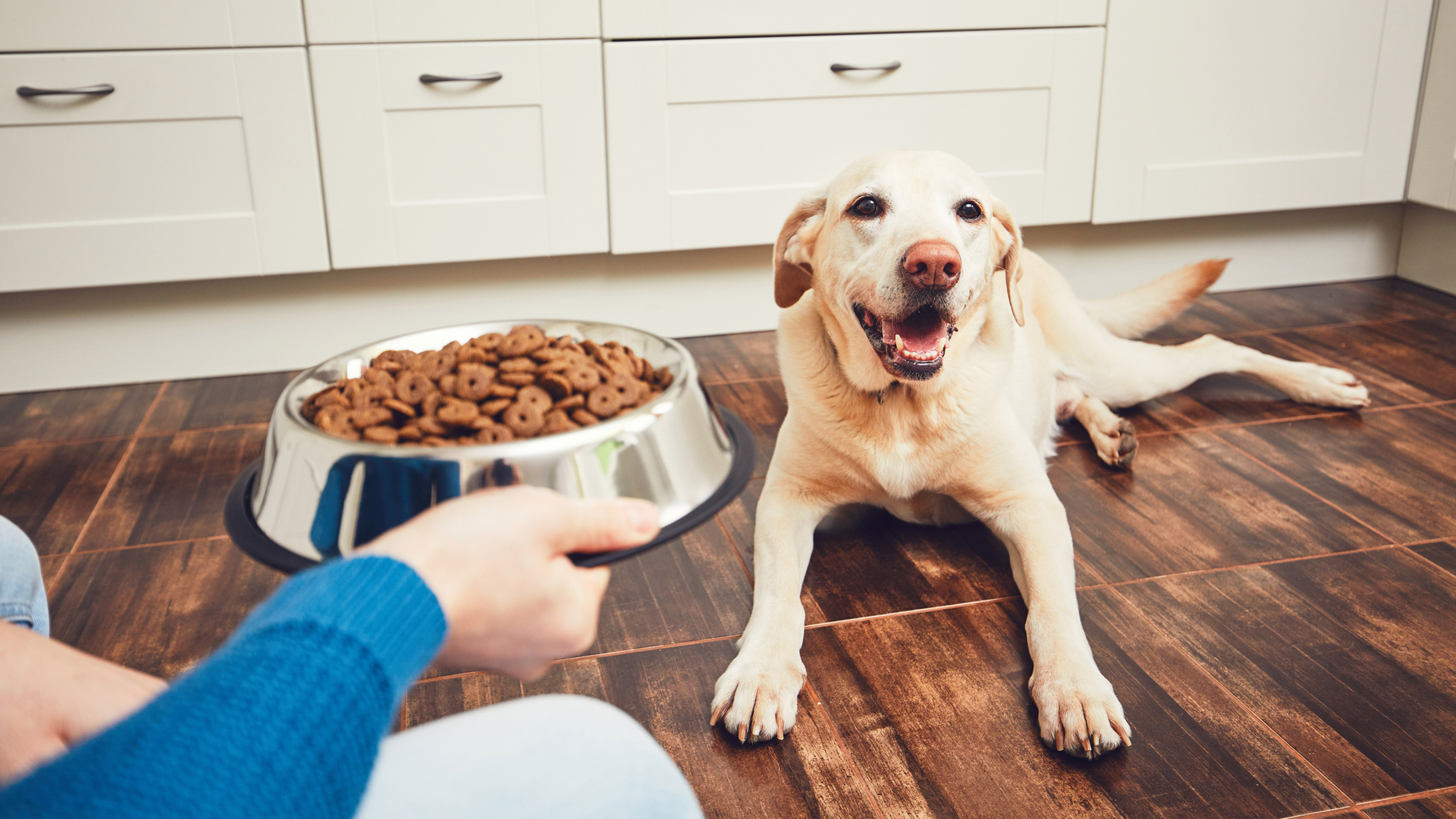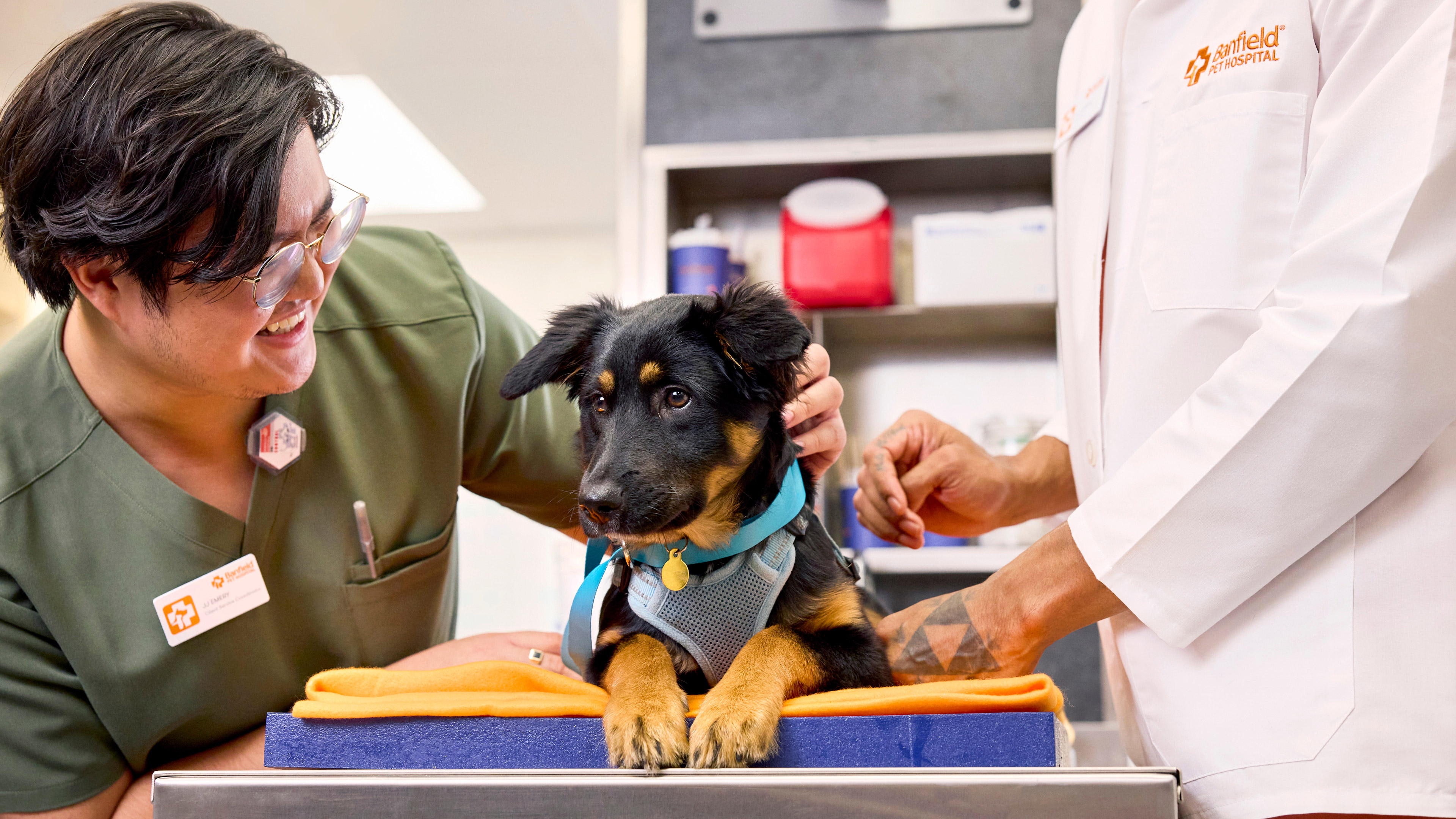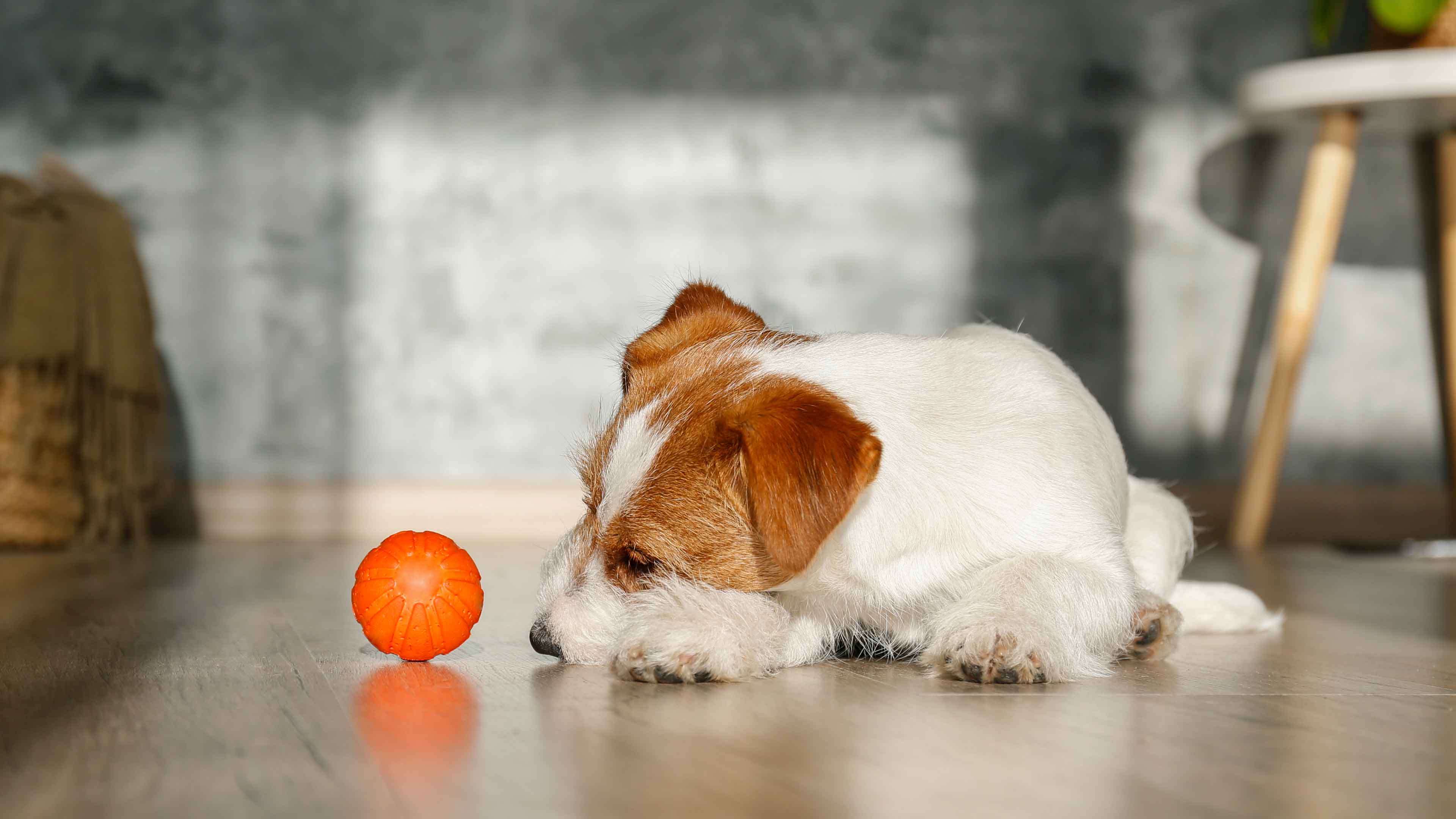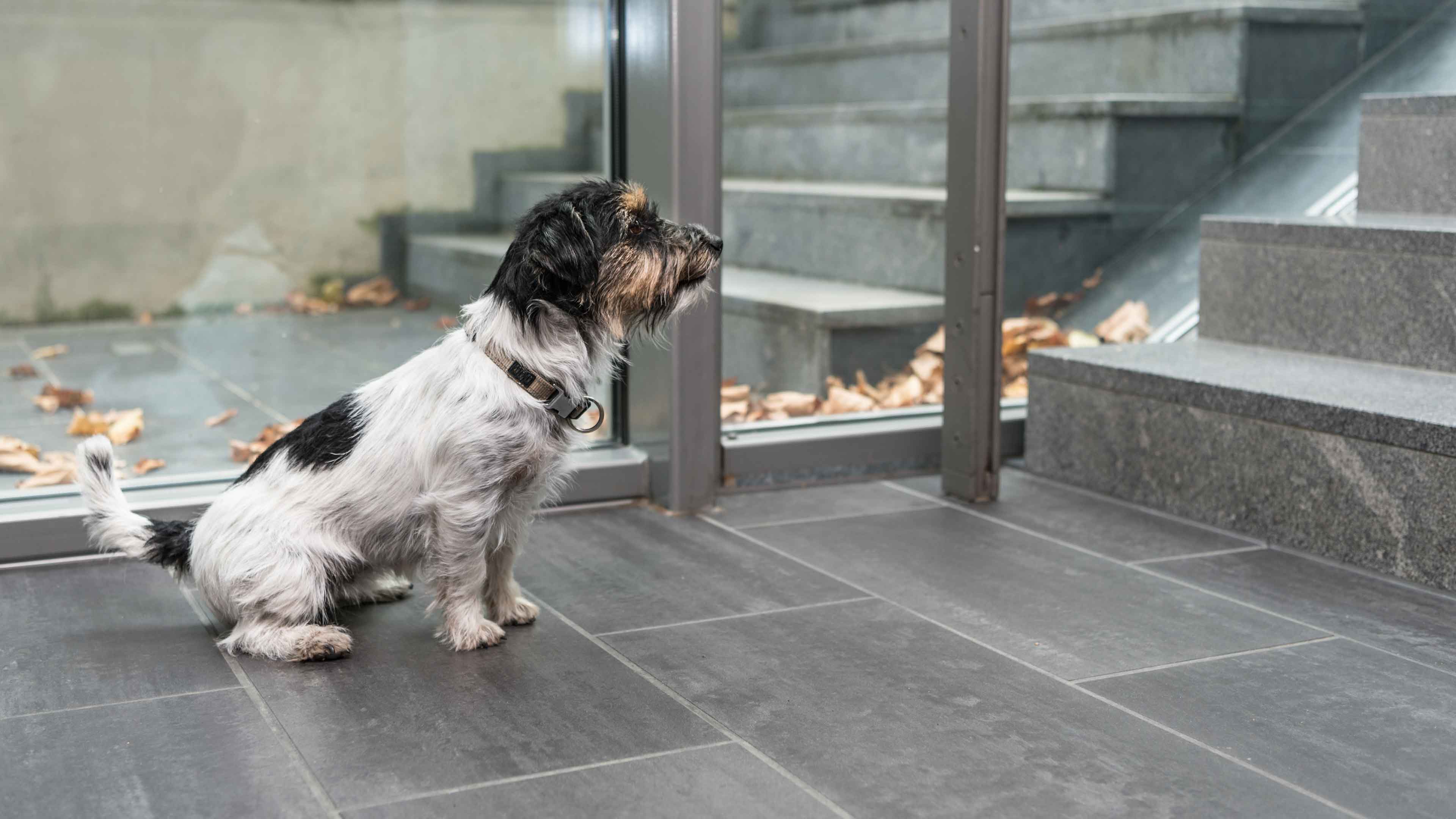pet safety tips for the holidays
Your pet can get into any number of holiday decorations: tinsel, lights, candles, ornaments, toxic plants, chocolate, and candy. Veterinarians sweat just thinking about it.
The good news is there are precautions pet owners can take to keep their pet safe during the holiday season and still enjoy a fun and festive celebration.
Common dog and cat holiday hazards
Tinsel is such a fun addition to holiday décor. The multicolor foil strands and garlands add sparkle and brightness that dazzle humans and pets alike. That’s why it’s important to keep tinsel out of reach of curious dogs and cats.
Watch closely for and stop your pet from playing with tinsel. If your pet should ingest tinsel, it could get lodged in their gastrointestinal tract and cause a blockage that could be potentially fatal (or at least lead to costly surgery).
Unfortunately, there isn’t a pet-friendly equivalent, so it’s best to avoid putting up tinsel altogether or placing it in an area where your dog or cat can’t reach it.
While wrapping paper is mostly innocent, its accoutrements can often pose risks for your pets. Ribbons, bows, bells, or any other small add-ons to your wrapped gifts are — you guessed it — potential choking hazards and more opportunities for blocking your pet’s gastrointestinal tract.
If you like to decorate your gifts with all the bells and whistles, make sure the packages are placed in an area your pet can’t get to. And don’t forget — animals have excellent sniffers. So if you give or receive a gift at your home containing food, you’ll most definitely want to stash it away.
Twinkling string lights are a must for the holidays, and fortunately, there are ways that lights and pets can coexist in the same household. First, it’s important to purchase LED versus glass lights. Glass lights are easily breakable, and the last thing we want is a dog or cat to ingest or step on shards of glass.
Second, you’ll want to ensure that string lights are out of your pet’s reach. Keep the lights up high or tightly secured so they can’t be easily ripped down by curious creatures, and consider using cord protectors. And candles? If you have active dogs or cats, skip the candles this year or use LED ones.
Christmas trees, specifically the real or fake needles on the tree, can cause gastrointestinal upset for your pet if ingested. Setting up a baby gate can keep your nosy pet and tree separated, but please watch out if your furball likes to jump or climb. '
As for winter plants, holly, mistletoe, lilies, and poinsettias can be toxic to pets. If ingested, they can cause stomach issues, seizures, and possibly death.
Christmas cactus, moth orchids, pink polka dot plants, large majesty palm, spider plants, roses, and bromeliads are considered nontoxic, so if you’d like a holiday plant around the house, those options are a safer bet.
Speaking of trees, as beautiful as glass ornaments are, make sure your tree ornaments are nonbreakable and place them high up on the tree. That way your inquisitive pet won't knock them over and possibly cut themselves. Also, avoid small ornaments, as they can be easily swallowed and become lodged in your pet’s gastrointestinal tract.
And lastly, if you love having chocolate around during the holidays (who doesn’t?), let’s say in a dish or advent calendar, you’ll need to be extra careful. Chocolate is dangerous for both dogs and cats and can cause nausea, vomiting, diarrhea, and possibly death.
Same goes for xylitol. This artificial sweetener, which is found in some chocolates and candies, is considered highly toxic to pets and can cause seizures, organ failure, or death. If you think your pet has ingested chocolate or xylitol, contact your veterinarian immediately.
Don’t forget! If your pet has an Optimum Wellness Plan, our 24/7 Pet Chat™ is a great resource for your holiday pet safety questions or even year-round questions!
(Note: If you think your pet has ingested a toxin, please call the Pet Poison Helpline at 800-213-6680 and take your pet to the closest emergency vet.)
Need tips on keeping your pet cool, calm, and collected during the holidays? We’ve got helpful resources here.
We hope you and your furry friend have a safe and wonderful holiday!
 Mites and mange
Mites and mange Podcast - Not Just Fluff
Podcast - Not Just Fluff
